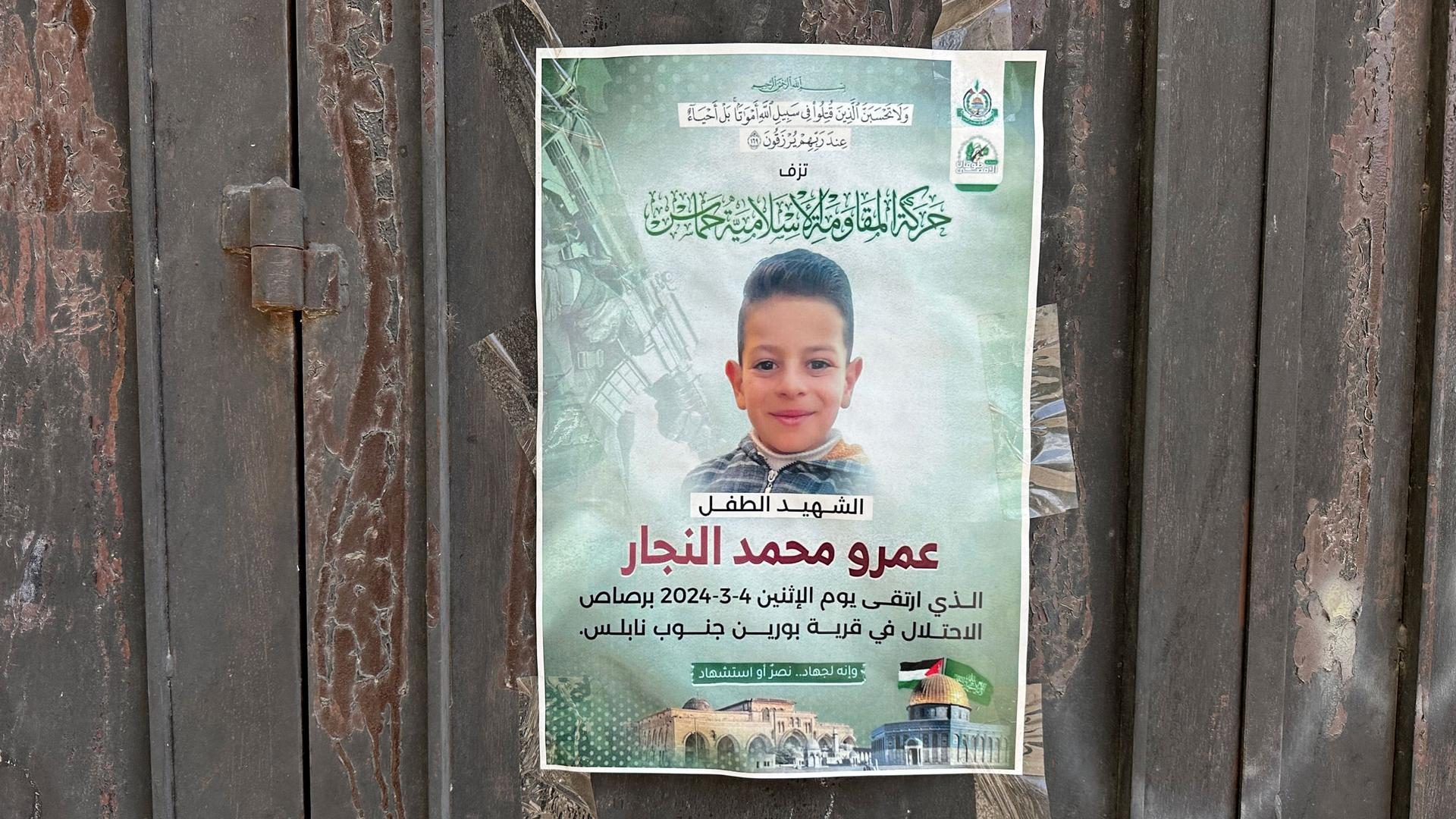‘He was killed with no justification’: In the West Bank, a Palestinian family grieves the death of their oldest son
Mohammed Najjar, his wife Salam Najjar, and their young children live in the West Bank, in a home that overlooks an olive orchard.
Their home is bordered by a highway built primarily as a convenience for Israeli settlers in the West Bank.
“The settlers are always around, so I make my kids play inside the house,” Salam Najjar said. “It’s not big, but I have to let them play soccer indoors.”

The Najjar house is surrounded by a heavy gauge steel fence.
Mohammed Najjar said he put it up last year when settlers living nearby attacked his house. They torched the two entrances, and then, blew up a gas canister, he said. They also killed a couple of sheep.
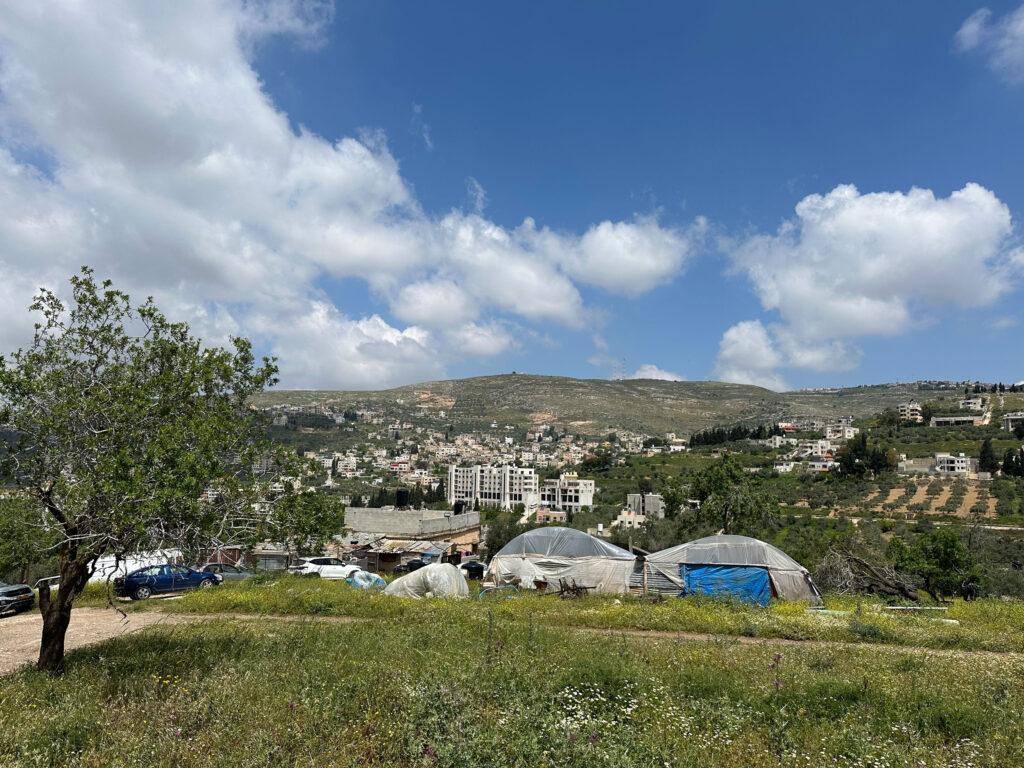
There may not be army tanks on the highways in the West Bank, but another war is being fought between Israelis and Palestinians here.
On March 4, the Najjars’ oldest son was killed.
“I had gone to a nearby town to get my phone repaired, Mohammed Najjar said, “and on the way back, I got a call from my wife telling me there were Israeli soldiers on patrol in our town.”
Mohammed Najjar was in the van with two of his sons, 10-year-old Amer, and younger brother Ahmad.
As they were driving into Burin, the village where they live southwest of Nablus, Mohammed Najjar said he could hear shooting.
“I stopped, but I could not locate where the sound was coming from,” he said.
He saw cars passing by him so he thought it was safe to drive ahead.
“Then, the cars came back, so I parked and waited,” he said.
As soon as he stopped, they were shot at, he continued.
“The shot came from in front of us. Amer was killed.”
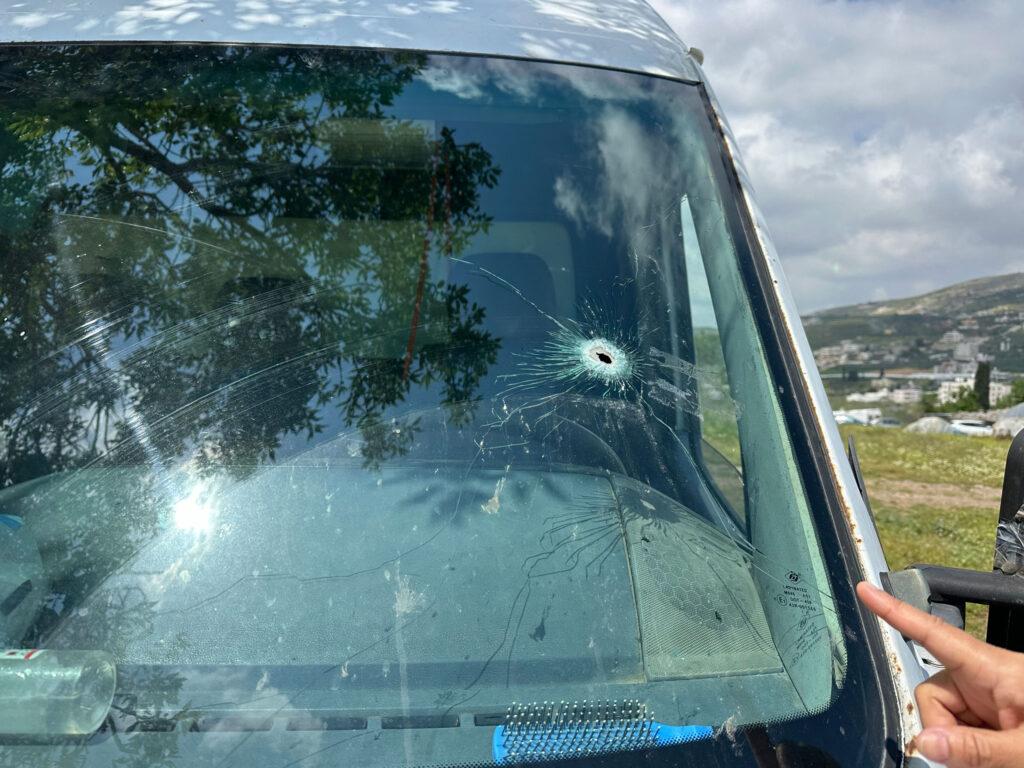
Moments later, he said, he saw that the bullet had come from an Israeli military jeep about 50 meters away.
“I got out of the car and started shouting, ‘Amer has been martyred,’” he said. “That’s when the jeep pulled toward us and stopped 20 meters from our van.”
The situation became very chaotic.
“People came over to help us, to take Amer’s body in another car to the hospital.”
It all happened in a matter of minutes.
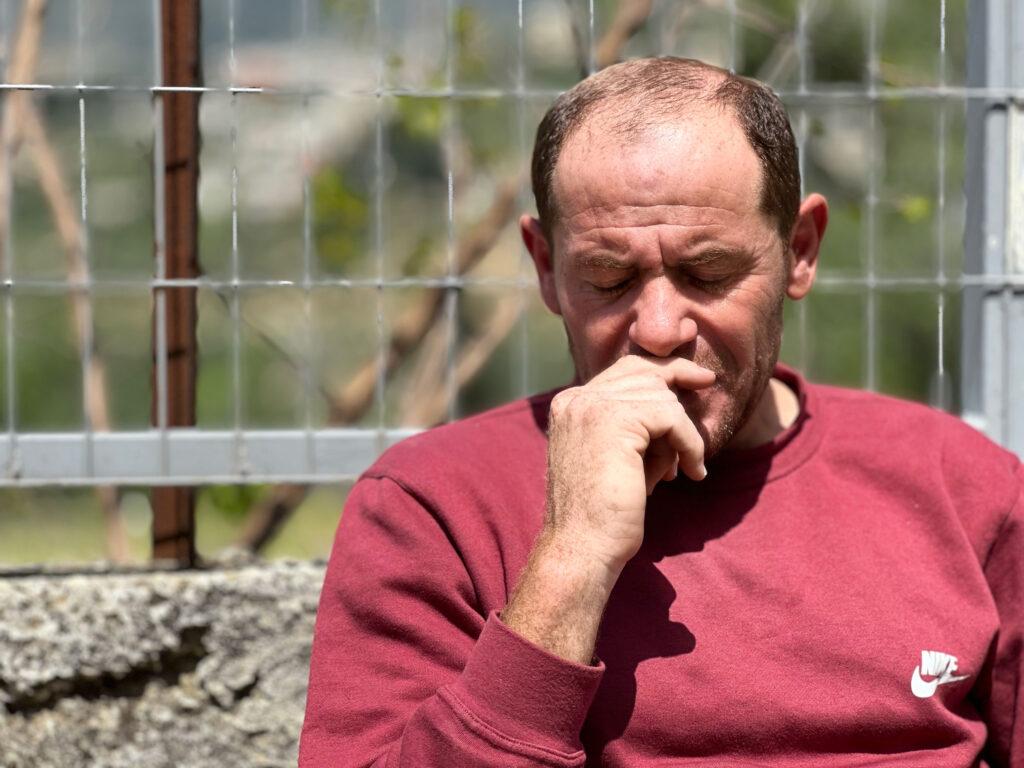
“They could see it was a child in a van. He was killed with no justification whatsoever,” Salam Najjar said of the incident.
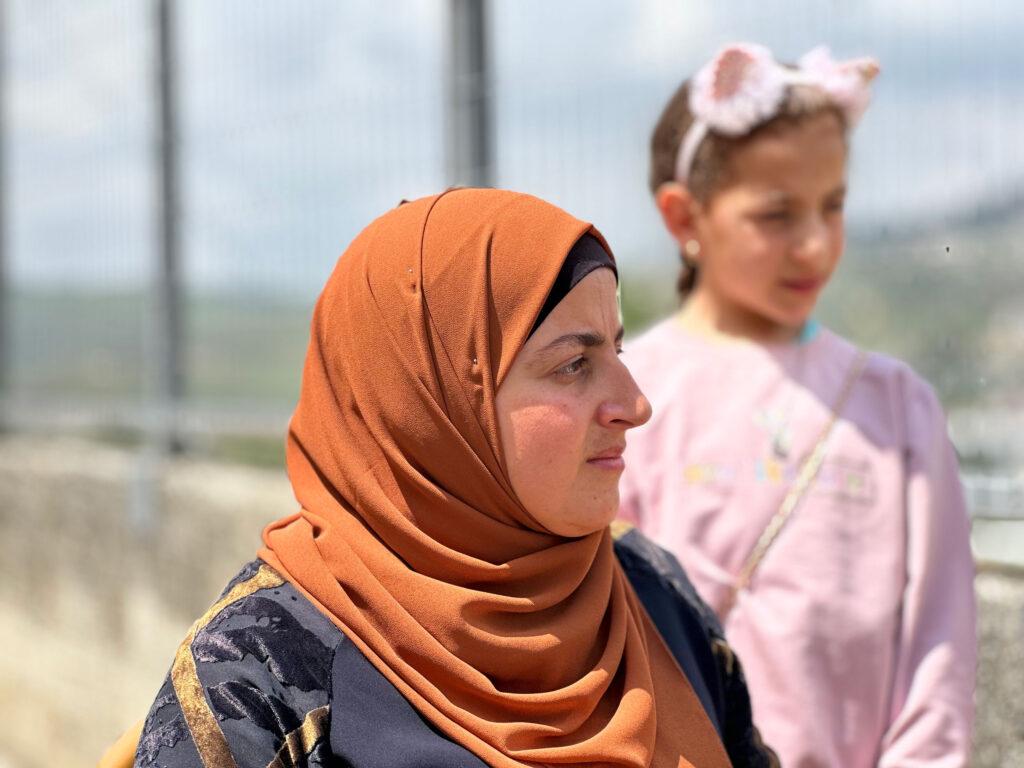
The World’s request for an interview with the Israeli Defense Forces (IDF) about the incident was declined.
The IDF did confirm in writing that they had troops in Burin on March 4, conducting a “counterterrorism activity,” and that they responded with live fire when confronted with rock throwers.
The statement then goes on to say that a Palestinian minor Amer Najjar died.
“The circumstances of the incident were examined, and it was found that the boy was hit by a stray bullet.”
The World had an appointment to speak with Burin’s Mayor Ibrahim Omar Abu al-Amir, but he got stuck at an Israeli checkpoint and had to cancel the in-person meeting.
“The Palestinians in the West Bank, we suffer from a lack of stability, a lack of security, a lack of movement,” he said over a brief chat by phone. “Look, I’m in Nablus, 10 minutes away, and I’ve been at this checkpoint for an hour.”
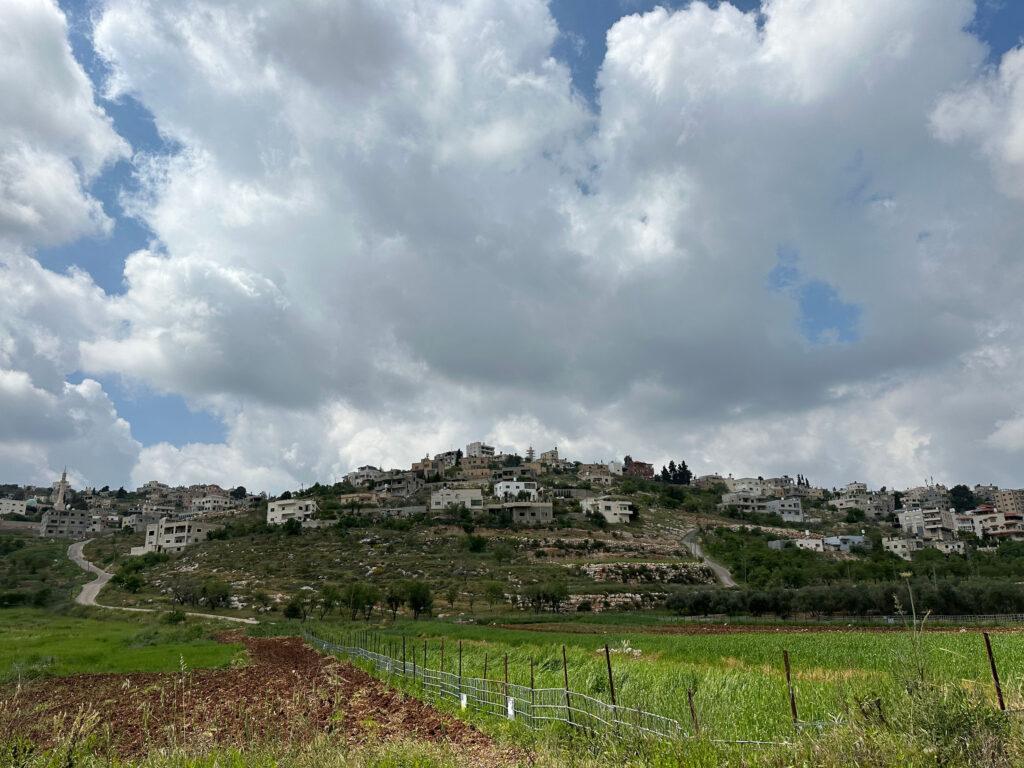
The mayor explained that Burin is flanked by three Jewish settlements.
“Those settlers attack us [and they are] supported by the army.”
Since Oct. 7, 2023, those attacks have increased on both people and livestock, he added.
“Every time our families know one of us has to go through these Israeli checkpoints, it’s like we’re bidding them farewell forever,” he said, adding that he had to go as tensions rose at the checkpoint.
“You never know when a stray bullet could end your life,” he said.
It’s been nearly two months since the death of the Najjars’ oldest child, Amer.
“If I’m alone, I collapse,” Salam Najjar said. “When I’m with my kids, I stay strong.”
Ahmad is traumatized, she said. He feels guilty that if he hadn’t insisted on going with his dad to the phone repair store, Amer wouldn’t have wanted to go.
She took him aside and said, “it’s not because of you.”
“It is very important for me to make him feel secure,” she said.

The Najjars as well as others here say that without the intervention of the United States and Europe, nothing in the West Bank will change.
The family continues to face threats from settlers and the Israeli army.
“They may feel they’re the stronger party,” Salam Najjar said. “But we know through our faith that we will defeat them.”
